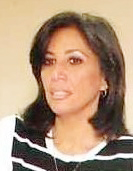
Egyptians reacted with shock and grief to the news of an armed attack on an Egyptian border post in North Sinai earlier this week. The fact that the attack occurred just as the victims—more than 16 Egyptian border guards—were breaking their Ramadan fast made the deadly incident all the more tragic.
Speaking to reporters after meeting with military and security officials on Sunday, President Morsy vowed that “the perpetrators will pay dearly for their crime” which he described as “an act of terror.” He also vowed that Egypt would regain full control of the Sinai. In response to the attack, Egyptian authorities immediately ordered the closure of the Rafah border crossing, the only exit from Gaza not under Israeli control. The crossing had been partially opened since May 2011 and Egypt had recently eased travel restrictions on Palestinians.
Appearing on an independent satellite channel shortly after the attack, Former Intelligence official General Sameh Seif Al Yazzal criticized the cordial relations between President Morsy and Gaza Prime Minister Ismail Haniyeh. He neglected –deliberately or otherwise – to mention that the responsibility of securing national borders lies on the shoulders of the armed forces and did not disclose that Egypt had received intelligence warnings prior to the attacks (a confession later made by Intelligence Chief Mourad Mowafy, according to El Watan newspaper). Al Yazzal instead lamented that Morsy had not raised the issue of underground border tunnels when he met Haniyeh in Cairo the previous week.
“There are approximately 850 underground tunnels from Rafah into Gaza. Hamas supervises the tunnels and all goods passing through them. Furthermore, it imposes tariffs on all goods,” he said, adding that “Hamas was not serious about closing the tunnels as that runs counter to its interests.”
Since Israel imposed a tight blockade around Gaza in 2007, underground tunnels from the Egyptian border town of Rafah into the besieged territory have been used to smuggle essential goods like food, fuel and construction materials to Gaza’s 1.5 million residents. The tunnels have also been used as trade routes for luxury goods like electronics and cars. Israel claims the tunnels allow the passage of arms and explosives as well as people and views them as a serious threat to its security.
Many Egyptians, on the other hand, see the tunnels as an essential lifeline for impoverished Gaza residents. Critics say Egyptian authorities have turned a blind eye to the tunnels and have done little to curb the smuggling. Yet a steel wall built by Egypt some years ago along the Rafah—Gaza border to secure the border caused the collapse of dozens of tunnels as it was being erected. Palestinians have said that despite the destruction of some tunnels, more than a thousand others remain intact.
Security officials had hoped the wall would stop Islamist militants infiltrating Egypt from the Gaza Strip. Three years after its construction, they say it has been of little effect. Jihadists from radical groups like Jaysh-ul-Islam and others have been active in the region, repeatedly attacking security forces and staging cross border raids. A pipeline supplying Egyptian natural gas to Israel has been blown up by militants no fewer than 14 times since Mubarak’s ouster early last year.
Seif Al Yazzal has warned that “Hamas uses militant groups in Gaza to attack Israel via Egypt.”
Security in the Sinai Peninsula has been a cause for concern especially since the January 25 Revolution, when the territory witnessed a surge in violence. Killings, abductions and armed robberies have been commonplace in the lawless region which is underdeveloped and lacking in security. Years of neglect and maltreatment have taken their toll on the local Bedouins who have retaliated with “revenge crimes” which include kidnappings and armed smuggling.
Despite deteriorating security, Egyptian authorities have done little (apart from sweeping arrests following the Sinai terror attacks in 2004 and 2006) to exercise control over the region. But this is about to change: analysts say the recent border attack was a wake-up call, alerting officials to the gravity of the situation.
Since the attack, security has been heightened not just around Rafah but on all roads leading up to the border town, Al Jazeera correspondent Rawya Rageh reported on Monday. Representatives of political forces meeting in Cairo on Tuesday meanwhile said they believe Egypt should do more to achieve full sovereignty over the Sinai. Muslim Brotherhood leader Mohamed Badie has affirmed that while Egypt was keen on respecting all international treaties, there was a dire need to revise security arrangements in the Camp David accord. The peace treaty signed by Egypt and Israel in 1979 restricts the number of troops Egypt can deploy in the border area. The increased violence in the Sinai Peninsula has, however, prompted Israel to consent to the deployment of additional troops in the region.
Meanwhile, anti-Hamas sentiments are running high in Egypt despite condemnation by Hamas officials of the killings of the 16 Egyptian soldiers and denial of any responsibility in the border attack. President Morsy may face intense pressure in the coming weeks to end plans of close cooperation with Hamas to ease the Israeli blockade of Gaza, say the analysts.
Morsy’s absence from a military funeral for the soldiers on Tuesday was an attempt to avert a direct confrontation with SCAF supporters who hold Morsy responsible for the deaths. They say the lax border security made the killings possible and accuse Morsy of prioritizing Hamas’ interests over national interests. Clearly it will be a while yet before Mubarak’s long legacy of hatred and mistrust for Hamas is forgotten.



